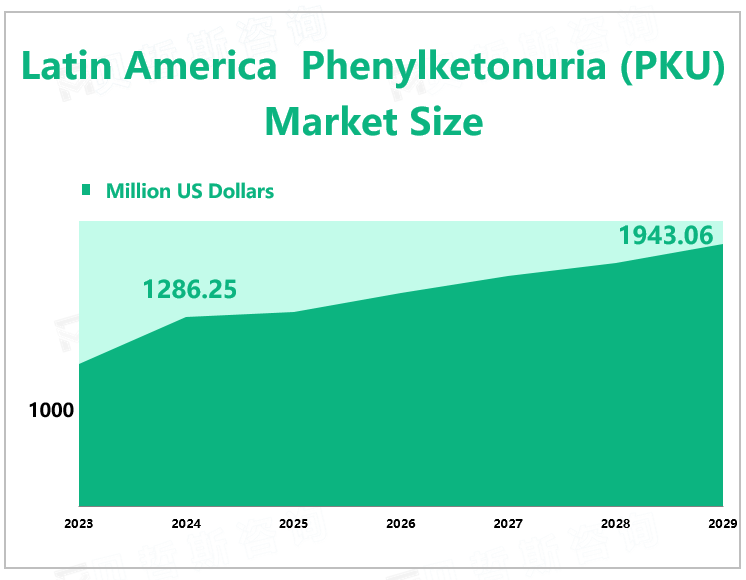Latin America Phenylketonuria (PKU) Market Overview
According to Global Market Monitor, the Latin Americaphenylketonuria market size is $1286.25 million in 2024 and is expected to grow to $1943.06 million by 2029.
Phenylketonuria (commonly known as PKU) is an inherited disorder that increases the levels of a substance called phenylalanine in the blood. Phenylalanine is a protein building block (an amino acid) that is obtained from eating certain foods (such as meat, eggs, nuts, and milk) and in some artificial sweeteners. If PKU is not treated, phenylalanine can build up to harmful levels in the body, causing intellectual disability and other serious health problems.
Most Countries ofLatin America Have Launched NBS Program
Genetic testing and newborn screening are enabling more cases of Phenylketonuria (PKU) to be diagnosed, increasing the market demand for Phenylketonuria (PKU).The consequences of untreated Phenylketonuria (PKU) include intellectual disability, microcephaly, motor deficits, autism, epilepsy, developmental problems, abnormal behavior and psychiatric symptoms. Therefore, newborn screening programs (NBS) for early diagnosis and disease management are crucial to reduce the impact of elevated Phe.
Brazil launched the NBS program in 1976, implemented mandatory screening nationwide in the 1990s, and achieved nationwide coverage in 2001, resulting in a significant increase in the newborn screening rate of the total population to 85.8%. In Argentina, regional screening began in 1995 and achieved nationwide coverage by 2006, with 90% of newborns screened. Overall, several of the 20 Latin American countries have implemented NBS programs for PKU. As genetic testing and newborn screening programs advance, more and more cases of Phenylketonuria (PKU) are being diagnosed, increasing the need for Phenylketonuria (PKU) diagnostic testing and treatment.

Rising awareness about Phenylketonuria (PKU) among healthcare professionals and the general public is also boosting the market growth. Increased awareness allows for more timely diagnosis and treatment of this disease, which is critical to preventing long-term complications and improving treatment outcomes. In addition, significant progress has been made in the development of new treatments for Phenylketonuria (PKU), including enzyme replacement therapy, gene therapy, and drug therapy. These new therapies have the potential to improve treatment outcomes and quality of life for PKU patients and are driving the growth of the Phenylketonuria (PKU) market.
|
By Type |
Medications |
|
Supplements |
|
|
Supplements segment accounts for the largest share of market in 2023. |
|
|
By Application |
Household |
|
Hospital |
|
|
The largest segment by application is the household industry. |
We provide more professional and intelligent market reports to complement your business decisions.